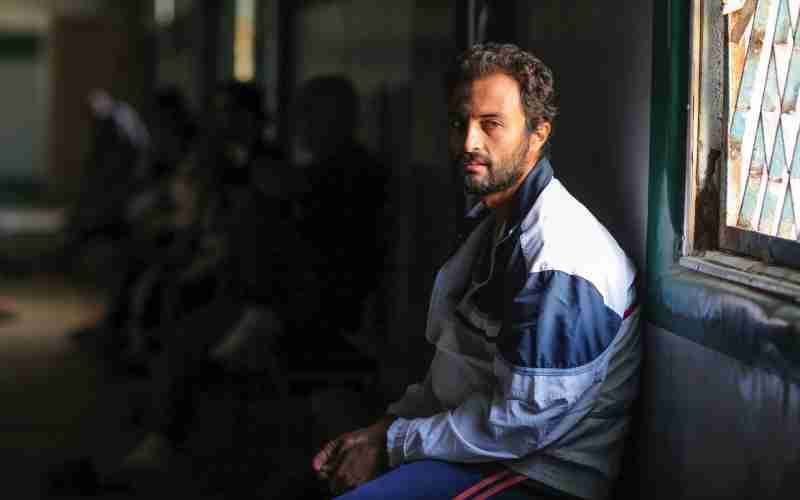Iran’s selection for Best International Feature Film at the Oscars later this year, A Hero is the latest drama from acclaimed storyteller Asghar Farhadi, whose films A Separation and The Salesman have taken home the trophy in years past.
Farhadi’s work is defined by an investigation of messy morality, specifically as it applies to men attempting to make the right choices under trying circumstances. His protagonists and antagonists aren’t strictly defined heroes and villains as much as flawed people who fall under categories that society might deem as either “right” or “wrong.”
The stories he weaves together tend to start with an ethical conundrum that may seem relatively easy to solve at the outset, but as more layers of complexity are added when choices are made, more parties tend to become involved, and the dramatic stakes ratchet up, too.
The narrative in A Hero largely takes place during a two-day leave that Rahim (Amir Jadidi) has from his prison sentence for failing to repay a debt owed to his creditor Bahram (Mohsen Tanabandeh). During the furlough, Rahim scrambles to figure out how to best remedy the financial misstep when his girlfriend Farkhondeh (Sahar Goldust), as luck would have it, happens upon a bag filled with gold coins. He doesn’t immediately jump to the morally upstanding conclusion of returning the bag to its rightful owner, but when he finds that its contents don’t quite cover what he owes, he takes to the local news and advertises the purse as missing. His very public lost-and-found plea sparks goodwill in the community as the media touts him as a local hero, but those who look closer at the situation begin to doubt Rahim’s heroism.
The terms of conceit in A Hero may be a culture shock for American viewers — specifically, that being in debt is a criminal offense that can come with a lengthy prison sentence for not being able to repay what is essentially a business loan. More specifically, it seems the lender has quite a bit of power when it comes to how the debt is repaid and even how much jail time is doled out. While I can’t say that I’m familiar with the particulars of financial law in modern-day Iran, I felt comfortable with the details that Farhadi lent out and chose to omit for the purposes of this gripping story. As it turns out, the way that the media rushes to deify a local figure — and is even more eager to tear the newly-crowned hero from the edifice that they built — will be all too familiar for American audiences.
Farhadi’s films hinge on nuance, and while the screenplay is loaded with it, much of the detail comes forth from the acting as well. As the meek and hard-luck Rahim, Jadidi commands the screen with a soft-spoken humility that conceals the rage of an honest man who feels he never got a fair shake in life. At times, this rage boils over and threatens to undo everything, but Jadidi also asserts Rahim’s quiet desperation in ways that are equally compelling.
Consider a scene where Rahim receives a merit certificate for his good deed. As he’s being handed the plaque, his son stands under him and starts to grab it from the corners. When the cameras start flashing, Rahim quickly jerks it up to reposition it better for the cameras and flashes his best smile. This could be seen as a duplicitous move, trying to play to the media’s newfound affection for him, but Rahim treats the certificate like a shield to protect both himself and his family.
“The only thing that matters is my honor,” Rahim tells a council intelligence officer, and we want to believe it, too.
Similarly, Tanabandeh portrays Bahram not as some sneering scold whose intent is to kick a poor man when he’s down, but rather, someone who was trying to do the good deed of lending out money and was punished for it. We come to learn more about Rahim’s past and Bahram does have good reason to believe Rahim is more unscrupulous than he’s been portrayed on the local news. In the digital age, much of print and online journalism has been robbed of the context and clarifying details that the reader needs to make informed decisions. With A Hero, Farhadi attempts to bridge that gap with an allegorical tale about how the truth means looking past the hasty categorizations that we’re fed everyday.
Streaming on Netflix is Munich – The Edge of War, a period thriller starring George MacKay and Jeremy Irons about a British diplomat who travels to Munich in the run-up to World War II, where he meets a former classmate who is secretly working for the German government.
Playing only in theaters is Redeeming Love, a romantic Western starring Abigail Cowen and Tom Lewis about a young couple’s budding relationship as it develops during the harsh realities of the California Gold Rush.
Screening at Cinema Center on Jan. 21 and 22 is Last and First Men, the directorial debut of the late Icelandic composer Jóhann Jóhannsson that depicts a vision 2 billion years in the future set to voiceover by Tilda Swinton and with music written by Jóhannsson.
 Submit Your Event
Submit Your Event



